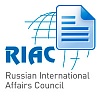Ahmad Khan: Pakistan’s Missile Conscription and Essence of War
In
Login if you are already registered
(no votes) |
(0 votes) |
The technical revolution in modern day warfare operations and tactics tantamount to Revolution in Military Affairs (RMA) ostensibly appeared in the jargon of military organization as enhanced data connectivity, optimized reliability, missile development, and space weaponization. The political and military leadership in the contemporary world is over-reliant on the technological uplifting to find the solution of social, political and military problems. This makes the contemporary technological revolution, not only changing the mission parameters, but also disseminates the strategic and operational thinking at various levels.
Revolution in Military Affairs (RMA) has become a stepping stone within the wider theory of next-generation military affairs. The military thinking embraced new dimensions in the context of wider political and strategic affairs. Taking this realism into account and envisioning the broader sketch of strategic thinking in Pakistan, a very positivistic and deterministic approach seemingly would start to appear on most of the strategic and political affairs. The strategic discourse in Pakistan is not reasonably flawed, but it seems more or less entailing “a blind and convinced form of abiding strictly to a certain narrative without embracing dialectical debate on the matter could potentially dangerous”[i] as far as the military repercussions of recent missile conscription in its inventory are concerned. The strategic positivism and determinism inside Pakistan’s military rank-and-file has empowered the military leadership to frame a new military thinking in which war is more than a reality. Shaheen-III is the state-of-the-art military endeavor by Pakistan to fix the missile gaps in South Asia. The technological specifications of Shaheen-III missile, meticulously highlighted the evolving military doctrinal and operational concept of blitzkrieg. The brief official statement highlighting the conduct of the test did not remark on the possible implications for long-term regional peace because of the more positivistic and deterministic thinking; whereas, the missile inductions in the militaries on both sides of the borders perpetuate a dangerous arms race in the region, vandalizing even the better aspects of the positivistic and deterministic approach at various rung of strategic, tactical and operational levels.

The Shaheen-III could be a game-changer or a force multiplier within the framework of progress or it could be a most Luddite Suggestion for regional peace and stability.
[ii] It is highly improbable that it will foster strategic stability, rather germinates a vicious and ruthless arms race in the region. Although, the India’s Integrated Guided Missile Development Programme (IGMDP) has developed and deployed more missile than Pakistan but it has successfully balanced and filled the missile gap. Phenomenological and non-empirical research underlines that Pakistan has a technologically advanced inventory of missile, now with the newest edition long-range missiles (Shaheen-III), which indeed reflects a better aspect of its military’s positivistic and deterministic thinking at the strategic and the tactical level, despite fears of exhausting arms race with its arch-rival.
The phenomenological research of Pakistan’s missile conscription also offers to incorporate certain disadvantages of its missile program expansion. The test represents a history “civilized” aerospace militarism and inexorable presence of threat perception incorporating a deteriorating security dilemma for Pakistan. The strategic thinking in Pakistan germinates a military urge, in lieu of its missile conscription, to equip “with force-multiplying equipment and technologies” to further enhance and widen the scope of its operations.[iii]However, the essence of war orchestrated the destruction caused by it, which cannot be replaced with the development of new technologies. The “civilized” militarism, arms races and the consequent wars in South Asia left behind a huge debris of social, political, and economic damages leading to more human suffering in the region. The induction of brute forces such as delivery means for nuclear weapons, and “organized violence as a part of a policy or culture, leaves in its wake a path of devastation.”
Ahmad Khan is a Ph.D scholar at the Department of Strategic Studies in National Defence University and also works as a Researcher in Pakistan Institute for Peace studies (PIPS).
[i]Cihan Erkli, “Waging War without War: Transformation, Progress and the Demise of the Jacobin Narrative,” Wise Men Center for Strategic Studies, August 30 2012, accessed March 3 2015, http://www.bilgesam.org/en/incele/1414/-waging-war-without-war--transformation--progress-and-the-demise-of-the-jacobin-narrative/#.VP6iQvmUeT4,
[ii] The terminology describes a state of mind in which One that fears technology (or new technology, as they seem pleased with how things currently are...why everything can’t just be the same?). See Erkli, “Waging War without War.”
[iii] Erkli, “Waging War without War.”
(no votes) |
(0 votes) |




